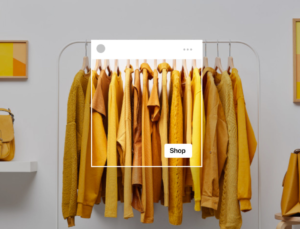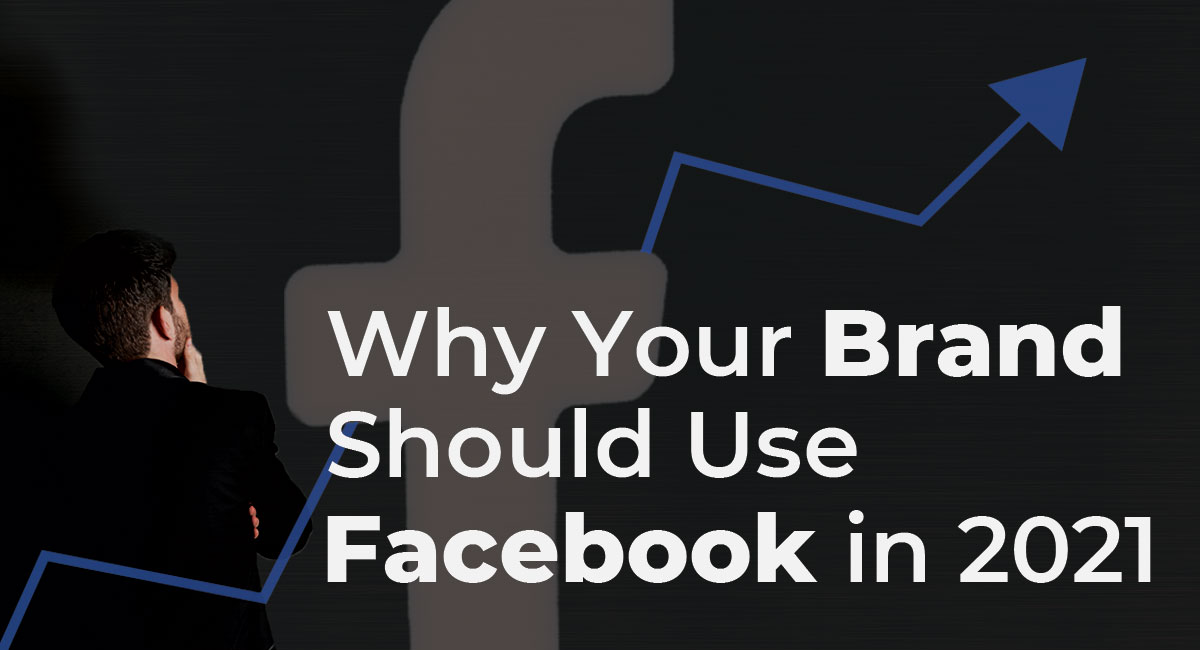While some marketers and users may think that Facebook has declined in popularity or usage over the years, you might be surprised to hear that it’s still a popular and useful platform. Facebook has the highest global user base of all social media platforms, at 2.7 billion monthly active users as of 2020! Businesses can use Facebook to reach large audiences, generate revenue, build brand awareness, and much more.
Why Your Brand Should Use Facebook in 2021
-
Facebook Ads are Low Cost and High Benefit
-
Set up eCommerce through “Facebook Shops”
-
Use Facebook to Build Brand Awareness and Community
1. Facebook Ads are Low Cost and High Benefit
While it’s important to have an organic strategy on social media platforms, it can be difficult for small and medium-sized brands to get their content in front of large audiences without investing in paid social media. Luckily, Facebook’s ad targeting options can get very specific, enabling brands to reach their exact audiences through options like Location, Behavior, Connections, Demographics, and Interests. Additionally, marketers can get even more granular by targeting Core Audiences, Custom Audiences, and Lookalike Audiences. Through the ability to target very specific audiences, brands can get their products and services in front of their most valuable prospects.
Facebook advertising is also a cost-effective option for a brand’s budget (the minimum daily ad spend is $1), return on investment, and conversion rates. In other words, it’s a great bang for your buck! At Spark Growth, we can personally attest to this: Facebook is one of the main paid ad platforms we use for our clients, where we frequently average between 2 – 30x return on ad spend!
Overall, the platform is set up with multiple features that help brands create a comprehensive advertising strategy. Marketers can use Facebook Insights and Ads Manager to track important KPIs and metrics like impressions, engagement, reach, conversions and more, and can get creative with their campaigns through a large variety of ad layout options. For example, types of ad formats include image, video, carousel, poll, slideshow, collection, dynamic, Instant Experience, and more. Additionally, its Ad Library allows users to conduct market and competitor research by sifting through other brands’ Facebook ads.
What your brand should do in 2021
- Determine if your brand can allocate marketing dollars into Facebook advertising (including both ad spend and the hourly cost to have someone managing the ads).
- Familiarize yourself with Facebook’s Ad Manager platform and consider your campaign objectives, audience details, and budget when doing so.
- Create a comprehensive ad strategy with your team.
2. Set up eCommerce through “Facebook Shops”
Earlier in 2020, Facebook added “Shops,” a feature that allows brands to set up an eCommerce store directly on the platform. While setting up an eCommerce shop may once have been an arduous process, it’s become much easier within the past year since many brick and mortar shops have had to shift to the digital space, and online platforms have adapted accordingly. Another big draw for customers is that they can view ads, correspond with, and shop from a brand all on one platform, which makes for a quick and seamless customer experience. If you are interested in setting up a Shop, you can do so through Facebook’s Business Manager, and you can view this guide here for more information. Be sure to read over Facebook’s Commerce Policies before setting up, which outlines the types of products and services that are eligible for the platform.
Brands who set up eCommerce through Shops can also build brand legitimacy since users are likely to trust a business that is set up through a reputable, secure platform like Facebook. If your brand doesn’t need to set up an eCommerce shop, it’s worth noting that other monetization features are available for businesses on Facebook. For Pages, this includes Fan Subscription, in-stream video ads, Facebook Stars, and a Donate button. For Groups, this includes Branded Content, Selling Merchandise, and tickets to paid events.
Regardless of whether you take advantage of Shops or look into other monetization options, Facebook’s plethora of business tools and resources make it a great platform for driving traffic and generating revenue.

What your brand should do in 2021
- If your brand still needs to set up an eCommerce store, research whether you are eligible for Shops on Facebook.
- Depending on whether you have a Page or Group set up, consider the monetization option(s) that best align with your business. For example, Donate allows nonprofit organizations to hold fundraisers, and Fan Subscriptions enables members to pay for premium access and content from a brand’s page.
3. Use Facebook to Build Brand Awareness and Community
Facebook is a great platform for disseminating informative content. Brands can share company-related updates, product information, and announcements, or can additionally position themselves as experts in the field by sharing relevant third-party content and news. Your brand’s Facebook profile can either be used as your business’ flagship or as a supplementary online resource. Either way, marketers can use Facebook to build brand credibility and awareness. For optimal audience reach, be sure that your brand’s profile is public.
This platform is also excellent for community management, which can help to improve customer relationships and brand loyalty. This can be done by responding to post comments, engaging with followers by including interactive content like polls, or corresponding with customers through direct messages. Additionally, since the integration of Facebook’s Messenger with Instagram in August 2020, brands can now manage all of their Instagram and Facebook messages from the Facebook platform. By being able to access them from one place, this can help to streamline the community management process.
One thing to keep in mind is that Facebook has different options for your brand’s profile, with differing benefits depending on your business’ objectives. Pages are ideal for building an online presence and connecting with communities by sharing brand-related content, whereas Groups are optimal for peer-to-peer connections where members can connect on a certain topic or interest. If your brand chooses Pages, your profile will only need 100 members in order for you to access aggregated demographic data. For Groups, your profile will need 250 members to see aggregated demographic data. Keep in mind that while Pages are able to run ads, Groups are not. This is one of the reasons why we suggest Pages for businesses, as this format tends to be more suitable for achieving business objectives.
What your brand should do in 2021
- If you’re not already on Facebook, determine which type of profile works best for your brand and look through the features that will best align with your brand objectives.
- Create a platform and community management strategy.
- Set up a Page or Group. If you’re unsure which one to choose, Pages are ideal for broadcasting information and updates, whereas Groups are ideal for member-to-member interactions about a shared topic or interest.
If you haven’t checked out our previous article yet, click here to learn why your brand needs to be on Twitter in 2021. Check back every other Monday to see more of our platform highlights in this 2021 mini-series!
And if your brand isn’t on Facebook yet, or is but you aren’t sure how to navigate the features we mentioned in this article, let us help you get started.
Schedule a conversation with one of our social media experts by clicking the button below!
href="#" data-color-override="false" data-hover-color-override="false" data-hover-text-color-override="#fff">Book a 30-minute consultation today!


